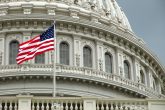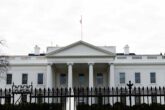October 18, 2020
Congress Can Do Far More to Oversee America’s Foreign Wars
Today, the “imperial presidency” is accepted as a given division of labor rather than seen as a counter-constitutional anomaly. And yet with the United States involved in military operations across multiple countries, and with debates about possible military interventions in Iran, North Korea, and Venezuela reaching the White House, congressional attention to the use of force should today be at a premium. The Founders were correct to vest national security decisionmaking in more than one branch of government, and history provides numerous examples of Congress positively influencing matters of war and peace. An inactive or indifferent legislature leaves power overly concentrated in the executive, while an engaged Congress may not just check presidential reach but can actively improve the conduct of American conflicts.
Congressional attention to the use of force should today be at a premium.
In recent years, most calls for greater congressional activism have focused on four broad categories of activity. First, the need to update the two authorizations for the use of military force (AUMFs) under which current overseas military operations are conducted. Second, restricting specific, potential military interventions (such as against Iran). The third involves matters that do not fall neatly under armed conflict for U.S. forces, such as constraining the employment of American enablers in military interventions abroad, or engaging in training, equipping, advising, or accompanying partner forces overseas in conflict zones. Lastly, members have made new attempts to reform the underlying legal basis for military intervention abroad, including the 1973 War Powers Resolution (WPR).
Read the full article in The National Interest.
More from CNAS
-
Sharper: National Security in a Divided Congress
Following the 2022 midterm elections, a new U.S. Congress was sworn in, resulting in a divided House and Senate with narrow margins. Key national security legislative items ar...
By Anna Pederson & Cameron Edinburgh
-
Schedule F: An Unwelcome Resurgence
The U.S. government is able to take on high-risk, high-cost ventures—nuclear security, pandemic response, environmental clean-up, food safety, and more—because civil servants ...
By Loren DeJonge Schulman
-
Western Hemisphere Migration is a Long-Term Challenge
Addressing western hemisphere migration should be a national and international priority....
By Carrie Cordero & Cris Ramón
-
The Lawfare Podcast: Klein and Cordero on the Latest FISA Numbers
To discuss the latest in FISA transparency news, the data and what it all means, Benjamin Wittes sat down on Lawfare Live with Carrie Cordero of the Center for a New American ...
By Carrie Cordero




